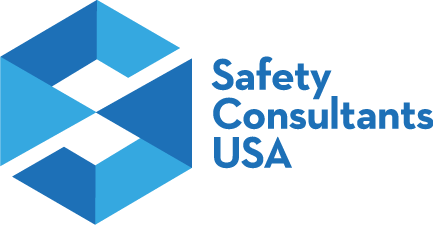The needs of manufacturers are unique when it comes to safety. In environments where both manual and automated processes are combined there are special safety challenges that must be addressed. Because the focus of OSHA compliance in manufacturing environments is different, so must the approach be tailored to these companies and their employees. The services of a manufacturing safety consultant can help a company address the OSHA-required safety training and written program compliance components, as well as uncover unsafety conditions and unsafe behaviors through targeted inspections. Here are some of the ways that we can help you reach your manufacturing safety goals and the advantages of using a safety consultant.
Project-Based Services
Many companies are uncertain where to even begin their safety journey. An excellent way to determine your current state (prior to an OSHA inspection) is a one-time facility safety audit. During an audit a safety advisor will look for violative conditions and document those findings as well as unsafe behaviors exhibited by employees. The company will receive a safety report documenting the findings and necessary corrective actions and provide a closed loop system to once the violative conditions are abated. In addition, this audit can uncover missing written safety programs and incomplete or undocumented training that is required based on the hazards which exist in the facility. These services are an excellent option for manufacturers looking for a baseline assessment.
Fractional Safety Person
Manufacturers that do not have the need for a full-time safety professional and have another employee on-staff that manages safety for the organization can often benefit from the services of a safety consultant. Many times safety rolls up under quality, operations or HR in many manufacturing environments and people in these roles can have an excellent grasp on the OSHA Regulations. People in these roles are most often very busy completing the work that is their primary function and because safety isn’t an emergency until it’s an emergency, safety can sometimes take a backseat to other priorities that are more immediate such as hiring, open enrollment, production or a quality issue. A safety consultant for manufacturing can ensure that even during busy times in an organization that the safety program continues to make progress and receives the attention required to keep the organization on the right path.
No Safety “Ownership”
There are other times when no one in the organization “owns” safety and the program exists but doesn’t receive the attention it needs to maintain compliance or ensure that the employees understand the policies and procedures. The services of a safety consultant in this environment can be especially useful because it means that someone is monitoring the safety programs to ensure they are up-to-date, conducting training with the employees and tracking safety training update requirements, and completing inspections to ensure that violative conditions are abated.
Add-on Services to Assist a Full-Time Safety Director
For larger manufacturers that employ a full-time safety director it can be useful to bring in the services of a safety consultant in order to verify that items are not being overlooked due to blind spots. In other circumstances having an objective 3rd party to verify that the observations are the same can be excellent validation for management and employees alike and can provide another point of reference to assure the organization that the safety program is headed in the right direction.
Advantages
Several advantages of hiring a manufacturing safety consultant may be:
- Cost – The cost of a manufacturing safety consultant is likely to be only a fraction of the cost of hiring a full-time safety director.
- Continuity – When you have a team of safety consultants who understand your facility and the operations therein, you will have the benefit of eliminating gaps that inevitably come from turnover that everyone experiences with employees.
- Expertise – A safety consultant is likely to see a wide variety of manufacturing environments and can share experiences from other facilities that may have bearing at other client facilities. The wide variety of manufacturers they are visiting, coupled with the variations in automation and even process safety management, mean that a consultant may have a broader ability to identify safety concerns and provide solutions that make sense.
- Experience – Different backgrounds and educational opportunities provide different insight to every safety professional. Often This translates to safety consultants who have seen a wide variety of environments and can bring that experience to bear on the challenges that manufacturing companies experience especially as increased automation continues to change the industry. Manufacturing safety consultants may have worked in other industries which allows them to bring unique ideas to the table when problem solving in a manufacturing environment.
